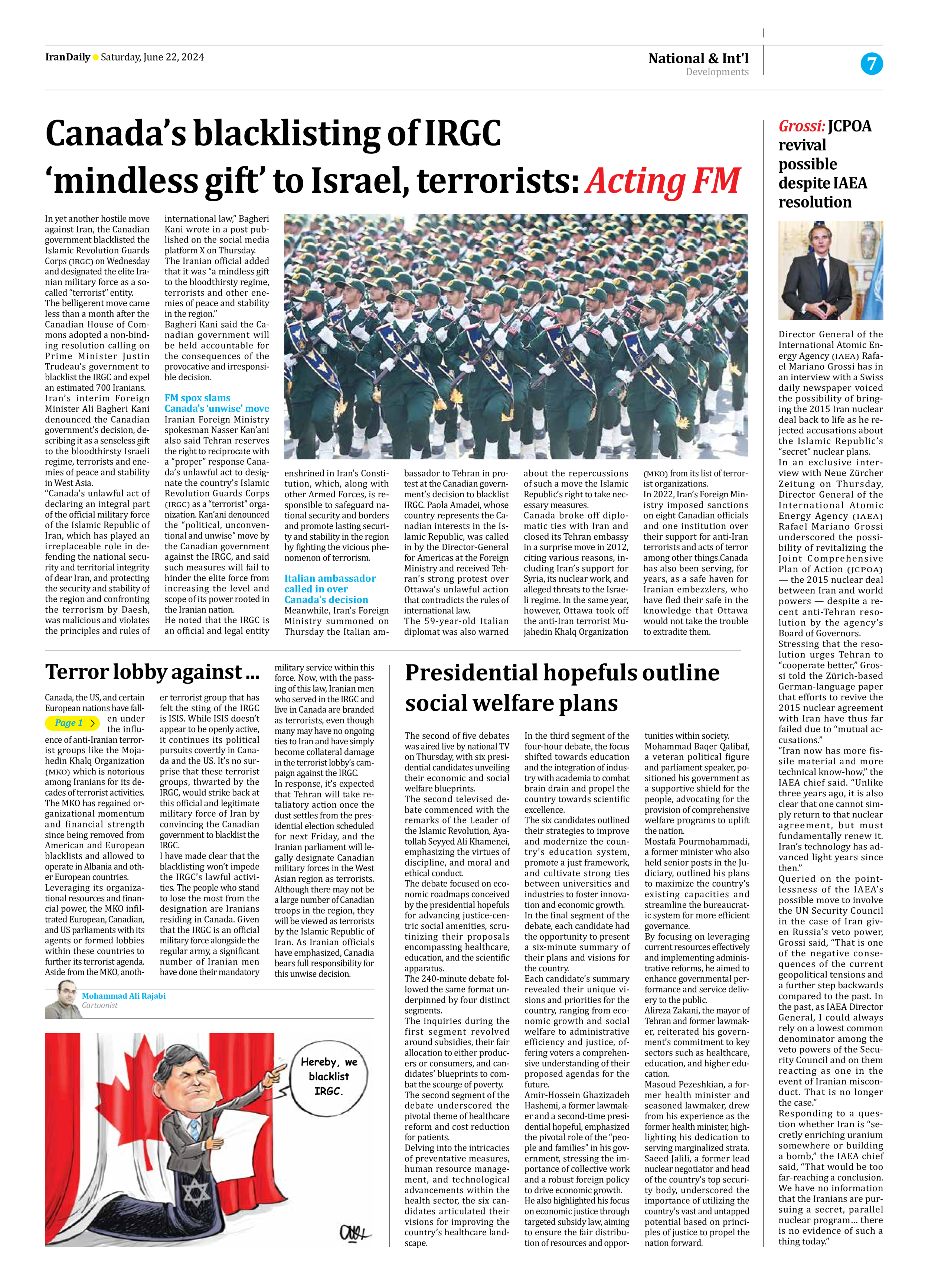
Copy in clipboard...
Grossi: JCPOA revival possible despite IAEA resolution
In an exclusive interview with Neue Zürcher Zeitung on Thursday, Director General of the International Atomic Energy Agency (IAEA) Rafael Mariano Grossi underscored the possibility of revitalizing the Joint Comprehensive Plan of Action (JCPOA) — the 2015 nuclear deal between Iran and world powers — despite a recent anti-Tehran resolution by the agency’s Board of Governors.
Stressing that the resolution urges Tehran to “cooperate better,” Grossi told the Zürich-based German-language paper that efforts to revive the 2015 nuclear agreement with Iran have thus far failed due to “mutual accusations.”
“Iran now has more fissile material and more technical know-how,” the IAEA chief said. “Unlike three years ago, it is also clear that one cannot simply return to that nuclear agreement, but must fundamentally renew it. Iran’s technology has advanced light years since then.”
Queried on the pointlessness of the IAEA’s possible move to involve the UN Security Council in the case of Iran given Russia’s veto power, Grossi said, “That is one of the negative consequences of the current geopolitical tensions and a further step backwards compared to the past. In the past, as IAEA Director General, I could always rely on a lowest common denominator among the veto powers of the Security Council and on them reacting as one in the event of Iranian misconduct. That is no longer the case.”
Responding to a question whether Iran is “secretly enriching uranium somewhere or building a bomb,” the IAEA chief said, “That would be too far-reaching a conclusion. We have no information that the Iranians are pursuing a secret, parallel nuclear program… there is no evidence of such a thing today.”







